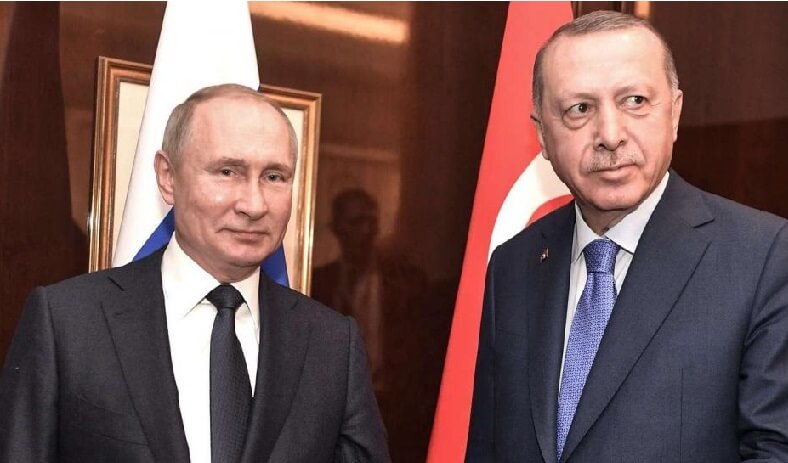In recent years, Turkey has been pushing its geopolitical influence aggressively, influencing and intervening in high-powered conflicts overseas.
Power Index: US The Most Dominant Military Power, China The Financial Super-Power
The country is getting unprecedentedly assertive under the leadership of President Recep Tayyip Erdogan and doesn’t shy away from supporting its allies politically, and often militarily.
The country has militarily intervened in Libya, Syria and Iraq in recent years, and to the dismay of the European Union members ramped up patrols in the Eastern Mediterranean over a water rights dispute.
Erdogan is emerging as the new flamboyant and no-nonsense leader, unabashed in his stand on global power dynamics. Recently, he joined Malaysia in taking on India with its policies in Kashmir, urging the United Nations to help resolve the Kashmir dispute.
India responded by terming his speech as “gross interference” in India’s internal affairs and “completely unacceptable” comment.
Turkey has for long been a NATO member and a trusted partner of the western powers, but it seems Erdogan’s new foreign policy is aimed at establishing a strategic autonomy for the country.
“Turkey’s growing assertiveness and aim to establish itself as a regional power stems in part from ‘accumulated frustration built over the past decades’ with its traditional Western partners,” according to Sinan Ulgen, a visiting scholar at the Carnegie Europe think tank, quoted by Euronews.
Erdogan’s aggressive military interventions in the Middle-East put him at odds with another major power – Russia. Turkey’s army fought the government forces in Syria, which was supported by Russia. In Libya too, the two countries again came face-to-face with each other, supporting rival factions.
After the two countries confronted each other in Syria and Libya, Erdogan again ended up on the opposite side of the Caucasus conflict from Russia, although the latter is not militarily involved in the issue. The experts view these conflicts as the manifestations of the power tussle between Turkey and Russia in Syria.
Turkey has now jumped into the simmering conflict in the south Caucasus, where the two warring parties, Azerbaijan and Armenia, are engaged in a fierce battle.
Erdogan declared all-out support for the Azerbaijanis, which are close Turkic allies, and blamed Armenia for ignoring efforts to negotiate a resolution. He echoed the Azerbaijan demands and urged Armenia to withdraw from Nagorno-Karabakh it occupied 30 years ago.

The conflict over Nagorno-Karabakh has left hundreds dead since Azerbaijan and Armenia began missile strikes against each other’s positions. Russia-brokered cease-fires have failed, and the two countries continue to exchange blows with heavy artillery, rockets and drones.
The region is internationally recognised as part of Azerbaijan but is under Armenian control.
What is interesting to note is how Russia has not militarily involved itself despite being strategically aligned with Armenia. The country also has a military base in Armenia.
Russia also supplies arms to both the countries, and according to the Stockholm International Peace Research Institute (SIPRI), the oil-rich Azerbaijan has spent some $24 billion on arms between 2008 and 2018.
Russia and Turkey have been at loggerheads in many conflicts in the region, the former is, however, merely playing a mediator’s role in the current conflict.
Turkey has grown its influence tremendously, and for the first time, it’s acting independent of the West, and even at times with conflict with them. The country has built strong diplomatic relations with countries as far as Pakistan and Malaysia.
Russia, on the other hand, has increasingly involved itself in the middle-east wars, particularly, in Syria. It has built many foreign military bases over the years and established reliable allies along the way.
The two countries are, however, bound to come in conflict again, since both are resolute in involving themselves in neighbouring disputes and have grand geopolitical ambitions. Russia is an age-old military power, while the other is aspiring to be one, and whether the two can co-exist with their assertive foreign policies in the region is a difficult guess to make.